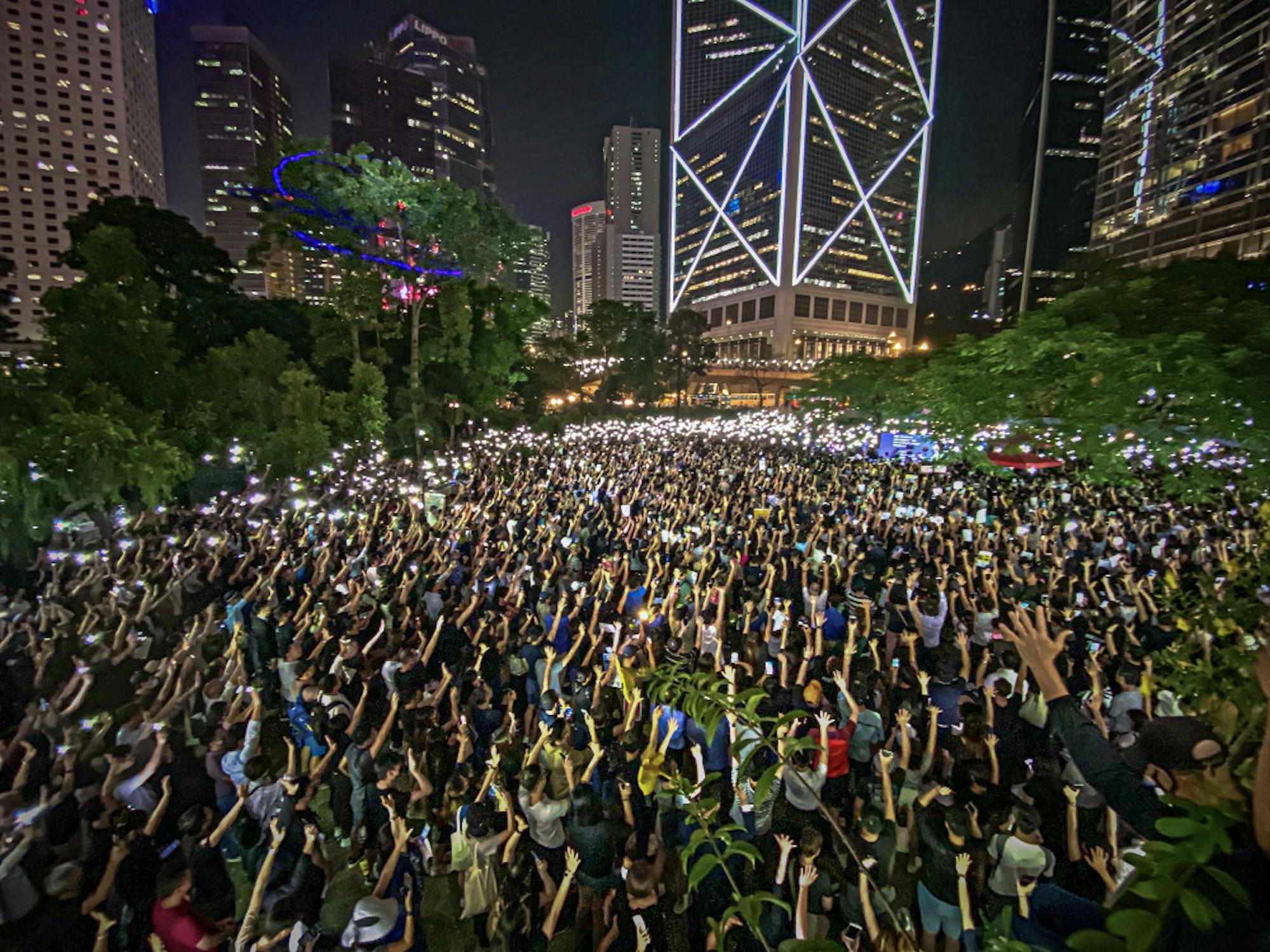Hong Kong has been consumed by violence and protests in recent months in reaction to a bill formally introduced in April that would have allowed the extradition of criminals and criminal suspects from Hong Kong to other countries, including mainland China. The possibility of extradition to mainland China is a source of fear for many Hong Kongers, and despite the fact that the bill has since been withdrawn, the turmoil persists.
Dr. Elizabeth Remick, a professor of political science at Tufts who teaches courses on Chinese politics, explained how she saw the history and context of the situation.
“The big issue is the extent to which at least some Hong Kong people are concerned that the [People’s Republic of China (PRC)] is interfering too much in Hong Kong affairs during the period where they’re supposed to be in a one country, two systems situation,” Remick said.
The government of Hong Kong, currently headed by Chief Executive Carrie Lam, believes the proposed law would prevent the city from being a haven for criminals. The protesting arose from opponents who say the law would give mainland China greater influence over Hong Kong and would expose Hong Kongers to unjust treatment, possibly even before they’re convicted of any crimes.
“Many people in Hong Kong were quite concerned that they could be extradited to the PRC, which they really did not want,” Remick said.
Remick provided some background on the current state of affairs by explaining the long and complicated history of mainland China-Hong Kong relations, which began in the 19th century during and after the Opium Wars. After the conclusion of the wars, Euro-American powers were given land, often through long-term leases and concessions. In some cases, however, territories were given up permanently, becoming the colonies of various foreign powers. Hong Kong was one such territory. It was ceded to the British from the Chinese government in perpetuity but didn’t seem to hold much promise.
“In the late nineteenth century, it became clear that it was going to be hard to make this small rocky island [Hong Kong] very self-sufficient,” Remick said.
As a result, the British chose to cede Hong Kong Island back to China in 1997, when they were required to return the New Territories and the Kowloon Peninsula, which, along with Hong Kong Island, make up the region of Hong Kong. Britain chose not to keep Hong Kong Island forever, which was the original deal, and the change in “ownership” led to the British and Chinese governments deciding how it would be run.
“One of the strongest desires of the Chinese government, starting after 1919, was to return all of those territories to Chinese sovereignty. So when the British started making preparations to hand Hong Kong back to the PRC, they sat down with the Chinese government and hammered out the basic law, which is basically a mini constitution for Hong Kong,” Remick explained.
This basic law is essential. Remick said the law says “Hong Kong’s politics and economics will not be substantially interfered with by the Chinese government until 50 years have passed,” which doesn’t come until 2047.
Remick said that part of the reason protesters in Hong Kong are so angry is that mainland China is not holding up its end of the deal, so to speak.
“I think the fears of many people in Hong Kong, from the very beginning, have been that the PRC would exert more control earlier than the agreement said,” Remick said.
Ki Ki Chan (LA’19), a Tufts alumna from Hong Kong who now lives in San Francisco, Calif., echoed Remick’s point.
“There's kind of been frustration in the lack of voice that we have, and it's annoying because we're not, from my opinion, trying to argue that we want independence because that is in our legal treaty. But what we want is respect of the time we still have now and not have this encroaching feeling of control and monitor as if we're already part of China,” Chan said.
Opinions on this issue are not isolated to Hong Kong, and neither are the protests. People around the world, including in Boston, have taken stances and publicly demonstrated their views.
Additionally, there are a number of Hong Kongers who call Tufts home. According to the Tufts University Fact Book for 2018–19, there were a total of 12 students from Hong Kong, nine of which were undergraduates.
Ben Hui is a senior who grew up in Massachusetts, but whose parents are both from Hong Kong. Much of his family lives in Hong Kong and have been impacted by the protests.
“My relatives who live in Hong Kong, and the people I know who have deep ties to Hong Kong, feel anxious about the situation and are worried that China may take more direct action to stop the protests," Hui told the Daily in an electronic message.
"We also feel for the protestors, who although, valiantly protesting, are not likely to be successful since China has not been open to complying to their requests in protests before," Hui added. "However, I still hope for an outcome where the Hong Kong people receive the rights that they deserve."
Despite the initial protests being about the proposed extradition bill, the continued turmoil is about much more. Part of the worry families like Hui's feel stems from the sheer length and endurance of the protests, especially because they have changed significantly since they began.
“The conflict has shifted so much in the last 19 weeks. It started from the law, and now there’s a lot of frustration against Carrie Lam and there's a lot more frustration against the police … [that is] a big part of the protest today and that wasn’t what it started as. So it's just constantly changing,” Chan said.
For Hong Kongers and Americans alike, the future of the conflict remains uncertain. The political and civil unrest has been present for months — in some ways, it has always been present. Remick noted that relations between Hong Kong and mainland China have never been perfectly peaceful.
“What I’d say is that it’s a complicated relationship … it’s very hard to predict what will happen,” Remick said.
Civil unrest persists in Hong Kong

The possibility of extradition to mainland China is a source of fear for many Hong Kongers.





